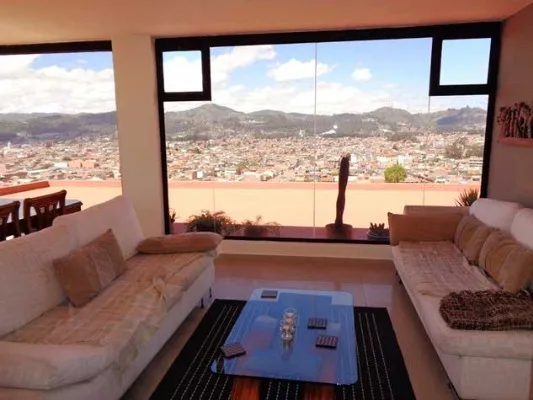Colombia violence continues as some residents, including expats, take up arms against protesters

Violence continues to rock Cali, Bogota and Medellin as anti-government protests enter their second month.
Four more people died in Colombia on Thursday and Friday as tens of thousands of protesters marked a month of demonstrations across the country, while talks between the government and the national strike committee were stalled.
In Cali, which has become an epicentre of the nationwide protests, the mayor, Jorge Ospina, confirmed three of the deaths during protests on Friday. Local media reported the fourth death occurred on the road between Cali and the town of Candelaria. Three of the victims were part of armed civilian squads who are fighting back against the protesters, demanding the reopening of streets and highways.
Demonstrations elsewhere were mostly peaceful, although clashes between police and protesters were reported in some areas, such as the municipality of Madrid, near Bogotá. Clashes between police and protesters are also reported in central Bogotá and Medellin.
“There must be dialogue between those calling for strikes, the national government, and the whole of society. If there are no talks, the spiral of violence will continue and unfortunately more people could die,” Ospina said.
Two people in Cali were killed when an agent of the attorney general’s investigative unit opened fire on protesters, before also being killed himself, said the attorney general, Francisco Barbosa, in a televised message. The agent was not on duty at the time and was acting on his owrn accord, Barbosa said.

Causualities mount in Cali. On Thursday, two U.S. expats were hospitalized after being attacked, disarmed and beaten by a mob.
The government says it is particularly concerned about non-protesting civilians taking up arms against the protesters, which it says are often violent. In one instance in Cali, two U.S. expats who were challenging protesters were disarmed and beaten with one remaining in critical condition in a local hosptial due to his injuries.
Ospina warned those who oppose the protests not to take the law into their own hands. “Many of the demonstrators are armed and they will kill you. Let the police and military do their job.”
The government has so far confirmed 27 civilian deaths as directly connected with protests, while human rights groups claim dozens more civilians have been killed by security forces. Two police officers were also earlier reported killed during the protests. Human rights agencies say the death toll is much higher, between 70 and 100, and complain that more than 100 people have “disappeared” during the conflict.
Demonstrations began on April 28, pressuring the government and lawmakers into shelving tax and health reforms and leading to the resignation of former finance minister Alberto Carrasquilla.
Amid singing and music during demonstrations in capital Bogotá, protesters said they would keep marching even after a month of demonstrations.
Since withdrawal of the tax reform at the start of the month, protester demands have expanded to include a basic income, opportunities for young people and an end to police violence. “Until the government listens to us, we have to stay in the streets,” said Alejandro Franco, 23. Close to graduating, he said he was marching for better education and health, among other reasons. “If the people don’t have peace then neither will the government,” he added.
Another unnamed protester challenged anyone opposing their position. “If you come after us with guns, we will kill you.”
Some said the long-running protests are putting them under financial pressure. “I have to close my shop every time there are protests,” Laudice Ramirez, 62, said in the south of the city. “I’m going bankrupt, but the youth don’t have any other options for opportunities.”
Despite the government and protest leaders reaching a “pre-agreement” for ending demonstrations this week, strike organisers on Thursday said the government had not signed the deal and accused it of stalling.
“We have already reached the agreement, the only thing missing is the president’s signature to start the negotiations,” Francisco Maltes, president of the Central Union of Workers, said on Friday, accusing the government of delaying talks.
The government said it had not signed the deal because some protest leaders would not condemn road blocks, calling the issue non negotiable, and adding that talks will resume on Sunday.
Colombia’s finance ministry estimates protests and roadblocks have cost the country almost $3 billion so far, with the roadblocks leading to shortages of food and other supplies, boosting prices, and disrupting operations in the country’s main seaport as well as for hundreds of companiees.
________________________
Credit: The Guardian, BBC
















